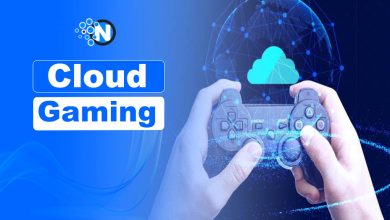7 Disruptive Technologies You Need To Know About

New technologies in the market disrupt our lives and how people do business, never more so than in the last few years. This type of technology is called disruptive technology.
Technology causes significant changes in the way we live our lives, mainly for the better is known as disruptive technology. It is disruptive because it offers an entirely new way of doing things and shakes up existing markets or industries.
However, generally speaking, most disruptive technologies are often met with backlash or resistance from companies that are too scared to embrace new technologies and upset the status quo. But this is mainly through the fear of the unknown, having to learn new ways, or working to accommodate this new development.
Disruptive technology can be used in various industries, the most popular being healthcare and transportation. However, as a rule, disruptive technology is usually dismissed at first until it has had time to mature, develop, and reach its full potential. In some cases, this can be a quick transition; after all, until it is put to use in the real world, it won’t know what it is truly capable of or where it needs to change for maximum impact. In other cases, it could be that it takes years to reach its full disruptive status and be accepted as mainstream completely.
Once this happens, the benefits from disruptive technology can be immense, from being cheaper to run, making services and products better and faster, or allowing people to do things easier and reach different aspects of an industry without the barriers that were in place before.
Top Disruptive Technologies
This blog post is going to look into some of the best disruptive technologies that have hit the market or are about to revolutionize the way you do business and change your life.
1- Blockchain
Blockchain is still thought of as something solely for Bitcoin and other cryptocurrencies; however, it is so much more than that. One of the main things to know about blockchain is that it is decentralized, meaning no single entity owns it. This means blockchain has increased security and transparency for all users and applications, benefitting every industry it applies in.
Blockchain is still in its early stages, though, and right now, it is primarily used for financial transactions thanks to its safe, secure, and tamper-proof transactions, which allows for greater accountability and confidence. Blockchain can also be used for fraud protection, education, financial markets, protecting intellectual property, and more. As the technology continues to develop, the scale of its abilities will increase, and its power to disrupt the market will be felt across many different industries.
2- Drones
Drones have been around for many years and can be used for both business and leisure pursuits. While you might not think of it as a disruptive technology, drones offer people the ability to reach places and see things that would otherwise not have been possible. Let’s take photography, for example. Using drones, photographers can reach elevated heights for better shots that would otherwise have only been possible via air travel; they can reach different angles easily without physically being there and capturing more action shots, leading to better quality images.
Drones are also helping businesses conduct surveys, reduce the need for human personnel to access dangerous areas, and allow for greater mapping of hard-to-reach areas and climates, especially in agriculture, without putting people at risk. High-quality drones such as DJI offer greater functions for indeed capabilities. As this technology advances and develops, we will discover what they are truly capable of, how they can change the way people work, and what is possible.
3- 3D Printing
3D printing is a technology that, like drones, has existed for many years, but its full capacity has yet to be reached. 3D printing allows raw materials to be used alongside equipment and technology to “print” various objects. It means that traditional manufacturing methods are being challenged to help people create products at will using this type of technology.
3D printing is often used to create concepts or prototypes that can help with product development and allow manufacturers to produce products on demand. It allows for rapid changes to be made and faster growth to help bring creativity to life. 3D printing will enable manufacturers to improve inventory management and streamline storage and warehouse space.
Currently, 3D printing is being utilized in the automotive and aerospace industries, healthcare, architecture, retail, and the electronic industry, to name a few. There are big things to be expected from this technology that will no doubt change the landscape for good in the future.
4- AI and Machine Learning
AI or artificial intelligence is already a massive part of many people’s lives. It has become commonplace, mainly in the customer service industry, for people to use AI to help them improve what they do and support the customer experience.
AI helps businesses understand customer behaviors and habits and helps to predict new trends and changes that can support the development of new services and products.
While great strides have been made in the AI world, it has yet to reach the depths of what it can achieve, and as such, there is no limit as to what AI will be capable of and what it will be used for in years to come. To say this is exciting for the world, in general, is an understatement, meaning we can only sit back and wait to see how this develops and influences the world around us.

5- As A Service
Everyone is familiar with the concept of Software as a Service (SaaS) and Platform as a Service (PaaS). But the world of “as a service” is still developing, and more and more people can now take advantage of cloud computing instead of buying physical products.
We have already seen this with major gaming systems offering consoles that allow you to download digital games held in the cloud or physical games on discs you need to insert.
Generally, the cost and conveniences of using cloud services mean that anything like this can be a more attractive option cost wise. Companies offering cloud-based scalable services are increasing these days because they are fitting into a wide range of industries easier than other available options. As the world becomes more digital and technology advances, we can expect to see the “as a service” sector increase over more areas and services to help disrupt our lives and how we do business.
6- Voice Searches
As more and more people turn away from typing searches into Google and using text searches to look for things online, voice search technology will change the face of SEO and how businesses and marketers work to help push their brands to the top of the search rankings. Approximately seven out of ten people prefer to make voice searches these days over text searches, and as it is so easy to do from mobile devices when out and about, this trend shows no sign of slowing down.
For real-world applications, it’s much easier to press and hold the microphone in your search bar, send a voice note, or “ask” for directions via a GPS app. This means that marketers need to rethink their strategies. SEO, as we know it, is about to get shaken up, and gone are keywords, and in comes long-tailed phrases and search terms as spoken by the user to ensure they are taking this trend into account going forward.
7- Working From Home
It is not strictly a technology, but working from home has definitely upset the working world and thrown businesses into chaos. While many had their hands forced to adapt to a new way of working thanks to the pandemic, others were already on board and had their plans accelerated.
As technology evolves, so too does its ability to allow workers more freedom to choose where they can work and how to get the job done, and more businesses are seeing the benefits that remote workers can offer. But it isn’t just remote working that is taking over. Companies are allowing more flexible and hybrid working arrangements. Thanks to the rise of some of the technologies mentioned in this post, there’s greater flexibility without compromising productivity and workplace efficiency.
On top of this, businesses are seeing reduced costs associated with fewer office employees, fewer sick calls, and time off for late starts due to poor transport links, car breakdowns, road traffic incidents, or issues with public transport.
There are so many technologies that are and can disrupt how we live our lives and our businesses. It pays to get out in front of the technology that can revolutionize how you work so you can become an early adapter and reap the benefits as it comes into its own.
Technology will only continue to develop and be able to do more. Fighting this evolution will only harm your business and put you on the back foot. So make a point of finding out what technologies are disrupting your industry and see how it can work in your favor sooner rather than later and jump on that bandwagon.




